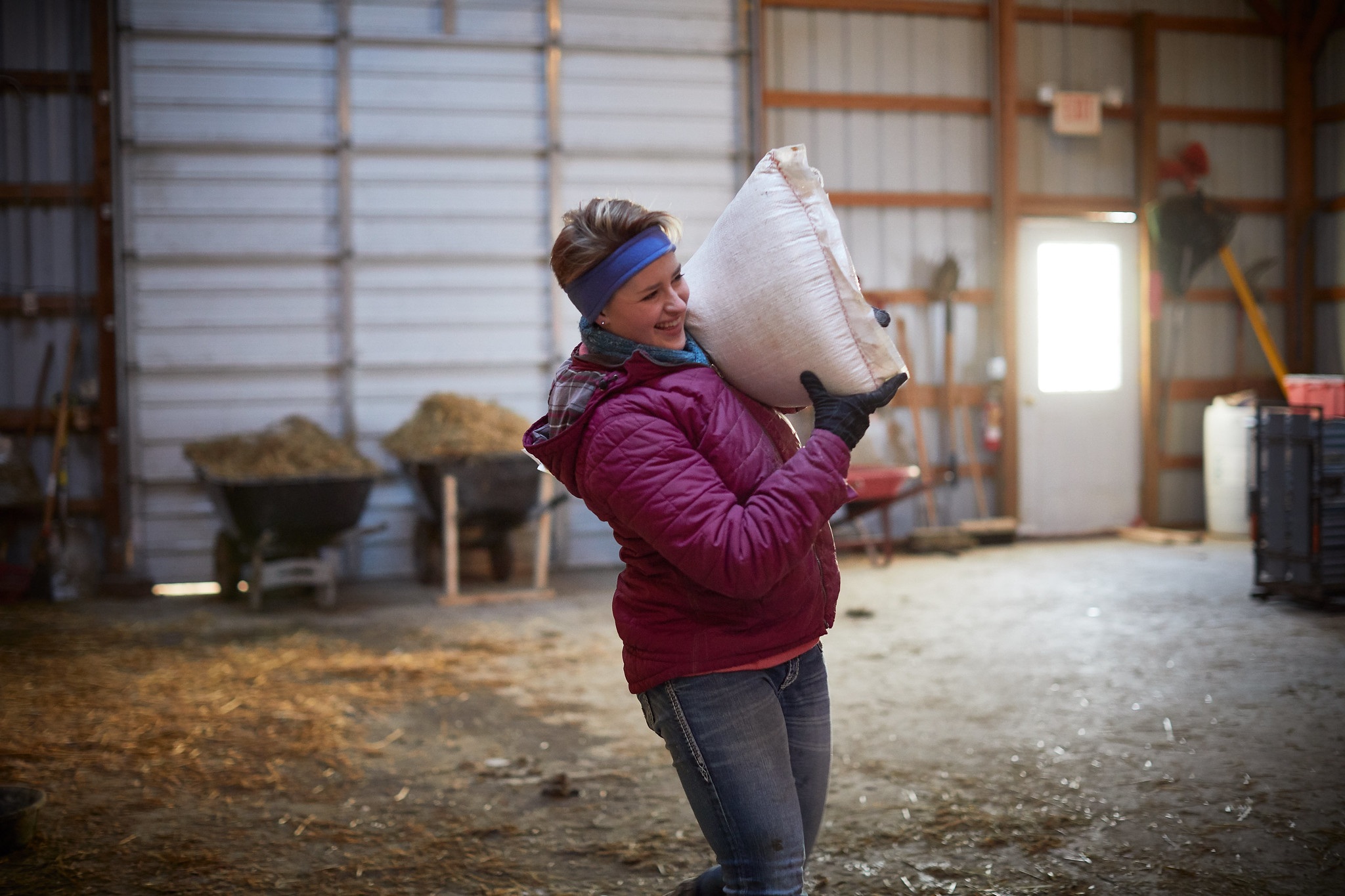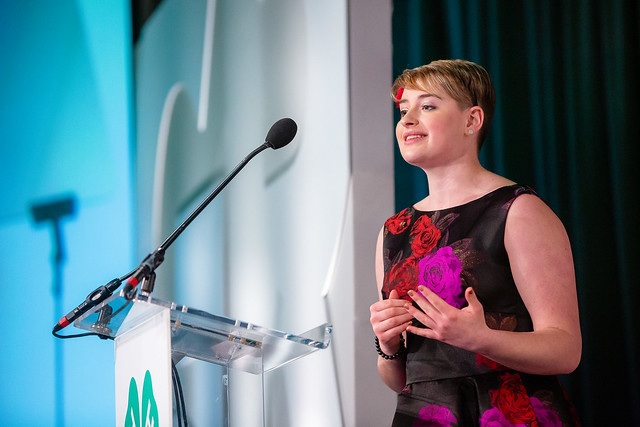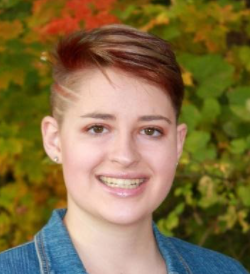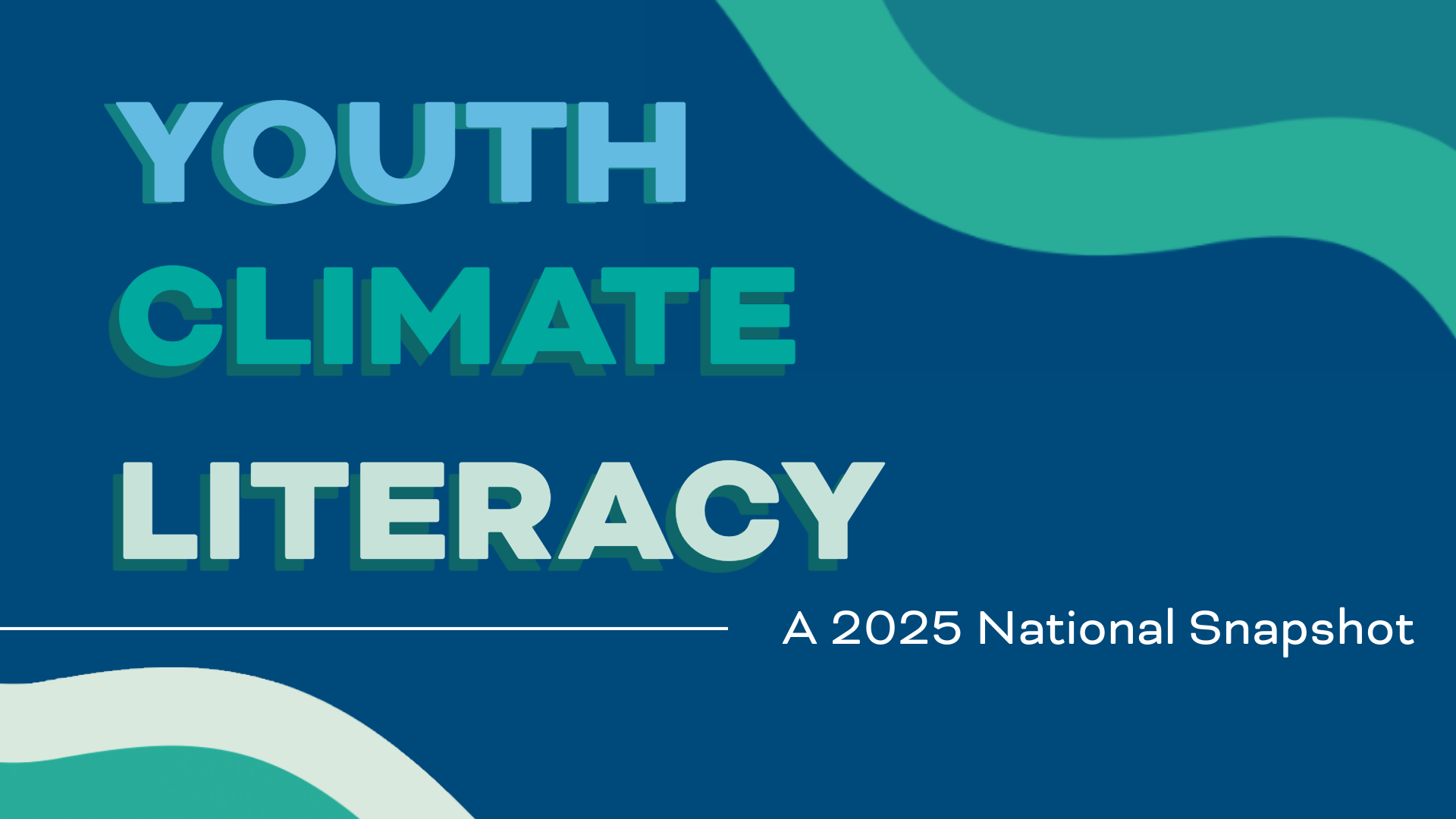Resources — Other Resources
Addressing Climate Change Through Community-Based, Local Youth Leadership

At 12 years old, when my rural hometown of Cass City, Michigan became a food desert, I experienced the first of what will be many moments of inspiration to help combat climate change. Seventeen percent of my community members were food insecure and through my 4-H experience, I realized that even as young teenagers, my friends and I could be a part of the solution.
We saw that many people in our community were struggling and knew that this was unacceptable—we needed to act. We were determined to tackle this issue of food insecurity and launched a community food project called “Meating the Need for our Village” to help our neighbors feed their families, through agriculture. Through this project, we raised livestock and poultry to donate high-quality protein, milk and eggs to those in need and increased our impact by empowering our peers to do the same.
The experience not only created change in my community, but it was also when I realized that young people could be leaders that help solve society’s pressing issues not just in the future, but today. My budding interest in sustainable agriculture transformed into a passion for building a healthier planet.
The Power of Youth Development Programs
Youth across the world have witnessed the impact of climate change on their communities. Forty percent of youth under the age of 18 believe that climate change is a crisis, according to a recent survey by The Washington Post and the Kaiser Family Foundation, and more than half of that group say they feel motivated to find solutions. Young people like me recognize that climate change is going to impact our future, and we must be the generation to solve it.
While many schools across the country teach topics like climate change and sustainability in the classroom, I’ve discovered that youth development programs, like 4-H, empower youth to apply this knowledge to real problems and make an impact, starting in their own communities. Youth development programs provide hands-on learning opportunities that expose young people to issues like climate change and spark passions for future careers that help address them.
4-H’s Out-of-School Approach to Climate Change Education
Growing up in a rural community, I’ve always been interested in how our approach to farming can impact the environment. When I participated in the 4-H Ag Innovators Healthy Soils program in 2017, I taught younger 4-H’ers the science behind soil conservation. I learned more about carbon sequestration, how farmers’ soil management can impact climate change, and how to communicate these issues to local farmers.
This year’s 4-H Ag Innovators Experience "Curbing Our Carbon Appetite Challenge" builds on the “Healthy Soils” program I participated in, providing youth with learning experiences around reducing carbon emissions. The program positions teens as teachers, who then extend the knowledge to other youth and adults in their communities. Positioning young people as leaders, these programs inspire my peers and me to solve issues brought about by climate change and develop lasting mindsets about the importance of being responsible stewards of this planet.

Addy Battel was the 2019 4-H Youth in Action Agriculture Pillar Winner
Applying Learning Experiences to the Global Stage and Beyond
Building from my work with 4-H, I’ve been able to engage in global sustainable food system discussions at the Aspen Institute and the U.S. Farmers and Ranchers in Action’s (USFRA) Honor the Harvest Forum and with the United Nations High Level Dinner Food Systems Dialogue I could connect the local approach and ideas about sustainable agriculture to the international stage to understand the implications of climate change across food security, health and economic outcomes as well as social equity.
I am now studying Environmental Studies and Sustainability at Michigan State University, aiming to pursue a career in sustainable agriculture policy to help address climate change. My 4-H experiences provided a critical opportunity to spark my curiosity for learning and innovation, and I apply this learning today as I work with local farmers to help them see the environmental and economic benefits of soil conservation.
A Community-Based Approach to Climate Change, Led by Youth
Tackling a global issue as critical as climate change can seem like a daunting hill for young people to climb, but I believe true systemic change can start locally with passionate young leaders and scale over time. It starts in our own backyards -- investigating the source of the issues, using our voices, and leaning into community resources and programs to help us reach a solution.
With 4-H’s reach of six million young people in all 50 states, territories and more than 3000 counties, community impact projects that are launched by 4-H’ers across the country, combined with climate change learning experiences, have the potential to create widespread, long-term national impact.
My story, along with the millions of other young people impacted by 4-H programs, shows that when young people are empowered they can bring fresh solutions to impact our world’s biggest issues. With the support of out-of-school youth development programs that give young people the agency to create change in their communities, the next generation of leaders will be equipped to fight climate change now and in the future.


